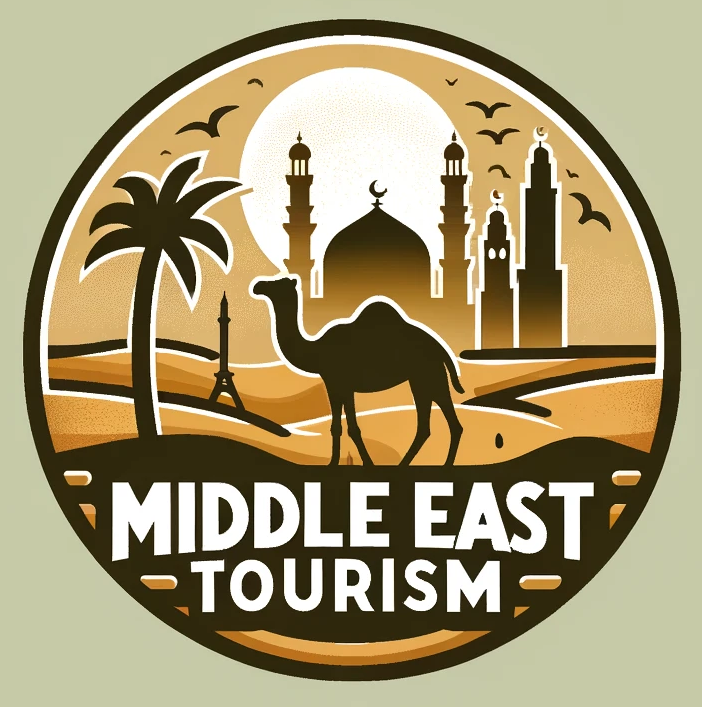Discover the enchanting world of Middle East shopping in this engaging article. Join us as we delve into the unique shopping experiences that await you in the vibrant markets and bazaars of the region. From traditional souks to modern shopping malls, Middle East Tourism Shopping offers a blend of tradition and innovation that is sure to captivate every traveler’s heart.
Middle East tourism shopping: the rise of luxury malls

In the ever-evolving landscape of Middle East tourism, shopping has become a crucial aspect of the overall experience for travelers seeking luxury and indulgence. With the rise of luxury malls in the region, visitors are now presented with a unique shopping experience that goes beyond mere retail therapy. Let’s delve into the latest trends and developments shaping the Middle East’s luxury shopping scene.
arab shoppers exploring new horizons
Arab shoppers, known for their appreciation of heritage luxury brands, are increasingly venturing into new territories when it comes to their shopping preferences. The opportunity to explore a diverse range of luxury offerings in state-of-the-art malls has captured the attention of affluent Arab tourists, leading to a shift in their shopping habits.
the allure of high-end shopping hubs
Wealthy Chinese tourists are among the key demographics driving the success of high-end shopping hubs in the Middle East. Flocking to these shopping destinations in search of exclusive experiences and luxury goods, they contribute significantly to the growth of the region’s luxury retail sector. The allure of these high-octane shopping hubs extends beyond shopping, offering a blend of entertainment, dining, and cultural experiences.
redefining the concept of vacation shopping
The notion of vacationing at the mall may seem unconventional, but in the Middle East, it has become a popular trend. Visitors are opting to spend their leisure time exploring the opulent malls that have become landmarks in cities like Dubai and Abu Dhabi. These malls not only cater to the shopping needs of tourists but also serve as entertainment complexes, making them must-visit destinations for travelers.
the impact of covid-19 on luxury shopping
The onset of the COVID-19 pandemic has had a significant impact on the luxury shopping scene in the Middle East. With travel restrictions and lockdowns affecting tourism, cities like Dubai have witnessed a decline in foot traffic in their once bustling shopping districts. However, as restrictions ease and travelers gradually return, the resilience of the region’s luxury malls is expected to shine through once again.
the future of luxury retail in the middle east
As the Middle East continues to position itself as a premier shopping destination, the development of mega malls and high-end retail projects remains a top priority. From Morocco’s new mega mall to UAE’s ambitious Reem Mall project, the focus is on creating unparalleled shopping experiences for both local and international visitors. The future holds exciting prospects for luxury retail in the Middle East, promising a seamless blend of extravagance and innovation.
the allure of traditional souks

Traditional souks, or markets, hold a special charm for travelers seeking a taste of local culture and unique shopping experiences. From the bustling bazaars of Marrakech to the historic souks of Dubai, these vibrant hubs of trade offer a window into the rich heritage of their respective regions. Let’s delve into what makes traditional souks so captivating for tourists.
immerse yourself in local culture
One of the main draws of traditional souks is the opportunity to immerse oneself in the local culture. These markets are often vibrant melting pots where locals and tourists mingle, creating a lively atmosphere filled with sights, sounds, and scents. Indigenous cultures are on full display, from traditional crafts and textiles to spices and regional delicacies. Visitors can interact with artisans and vendors, gaining insight into age-old traditions passed down through generations.
treasure troves of unique finds
For travelers with a penchant for authentic souvenirs, traditional souks are treasure troves of unique finds. Handcrafted goods such as artisanal pottery, intricate jewelry, and handmade textiles abound, offering a chance to take home one-of-a-kind pieces that serve as lasting mementos of the journey. Bargaining is often part of the shopping experience, adding an element of excitement and authenticity to the transaction.
a feast for the senses
Visiting a traditional souk is a true feast for the senses. The vibrant colors of textiles and spices, the exotic scents of perfumes and incense, the melodic calls of vendors hawking their wares―all combine to create an immersive sensory experience that leaves a lasting impression. Travelers can sample local delicacies and traditional beverages, indulging in the flavors of the region while soaking in the bustling ambiance of the market.
preserving heritage and tradition
Traditional souks play a vital role in preserving heritage and tradition in a rapidly modernizing world. These markets are often hubs of cultural exchange where age-old practices and crafts are kept alive and passed on to future generations. By supporting local artisans and businesses in traditional souks, travelers contribute to the preservation of indigenous knowledge and craftsmanship, ensuring that these traditions endure for years to come.
In conclusion, traditional souks offer travelers a unique glimpse into the soul of a destination, allowing them to connect with local culture in a meaningful way. The allure of these vibrant markets lies in their ability to evoke a sense of authenticity and tradition, making them must-visit attractions for those seeking a truly immersive travel experience. Next time you find yourself in a destination known for its traditional souks, be sure to wander through these bustling markets and discover the magic they hold.
bargaining and haggling in the middle east

Arab Perspectives on the Middle East Crisis
In the complex landscape of Middle Eastern tourism, negotiation techniques play a crucial role in fostering positive interactions and achieving mutually beneficial outcomes. Understanding Arab perspectives on the region’s challenges is essential for navigating successful negotiations in the tourism industry.
Analysis: Two million human bargaining chips
The ongoing crises in the Middle East highlight the delicate balance of power and interests at play. Negotiation techniques that emphasize empathy, cultural sensitivity, and open communication can help address complex issues and mitigate potential conflicts.
A Mixed Report Card: The Abraham Accords at Three
As the Abraham Accords mark their third anniversary, evaluating the progress and challenges of these agreements is essential for shaping future negotiation strategies in Middle Eastern tourism. Realigning priorities in line with changing geopolitical dynamics can enhance collaboration and promote sustainable tourism development.
ICAN 2023 Opens in Riyadh
The International Conference on Arab Negotiation (ICAN) serves as a platform for policymakers, industry leaders, and experts to exchange insights on effective negotiation techniques in the Middle East. Embracing innovation and fostering partnerships are key drivers for enhancing the tourism sector’s resilience and competitiveness.
Hotel RFPs: The Negotiating Outlook for 2024 Rates
Hotel Requests for Proposals (RFPs) represent a critical aspect of negotiation in Middle Eastern tourism. Adapting to market trends, leveraging data analytics, and engaging in transparent discussions can lead to favorable rate agreements and strategic partnerships in the hospitality industry.
Saudi Arabia Travel Advice & Safety
Prioritizing traveler safety and well-being is paramount in the negotiation process for tourism experiences in Saudi Arabia. Understanding local customs, adhering to travel advisories, and seeking guidance from reputable sources can enhance the negotiation outcomes and ensure memorable and secure journeys.
Oct. 8: Hamas, PIJ Claim to Hold 130 Israelis Captive in Gaza
Recent developments underscore the geopolitical complexities that impact negotiation strategies in the Middle East. Upholding diplomatic channels, fostering trust-building measures, and promoting conflict resolution mechanisms are essential for navigating challenging situations and promoting sustainable tourism practices.
Meet the Leadership Team in NEOM’s Tourism Department
Engaging with key stakeholders, such as the leadership team in NEOM’s tourism department, offers valuable insights into local perspectives and priorities. Building collaborative relationships, fostering cross-cultural understanding, and aligning goals can lead to innovative partnerships and enriching tourism experiences in the region.
Sommet Education and Ministry of Tourism Partner for Hospitality School in Saudi
Educational collaborations, such as the partnership between Sommet Education and the Ministry of Tourism in Saudi Arabia, contribute to fostering talent and expertise in the hospitality sector. Embracing educational initiatives, nurturing a skilled workforce, and fostering a culture of continuous learning are integral to advancing negotiation techniques and driving sustainable tourism growth in the Middle East.

